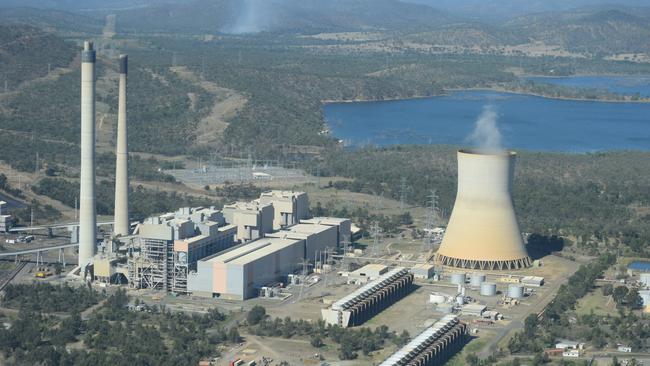Court orders handover of documents related to 2021 explosion at Callide C power station
A Federal Court order may finally provide answers to the cause of the explosion that crippled Queensland’s Callide C power station almost three years ago.

Queensland taxpayers may finally get some answers on the causes of the explosion that crippled the Callide C power station almost three years ago, after the Federal Court ordered the handover of a secret report into the disaster.
The court this week gave forensic engineer Sean Brady a two-week extension on orders to produce a raft of documents related to his long-awaited investigation into the causes of the explosion at Queensland’s Callide C power station in May 2021.
Dr Brady was commissioned in June 2021 by Queensland government-owned CS Energy, which operated the plant, to examine the root causes of the explosion, but no final report has yet been made public.
After three years of secrecy, the broad-ranging court orders may finally bring some answers to the energy market, and for taxpayers that own the plant through the Queensland government-controlled CS Energy.
The court orders require Dr Brady to produce any draft report prepared as a result of his investigation, and sent to CS Energy, but also copies of all correspondence between the forensic engineers and his taskmasters at the state-owned energy company.
Dr Brady has also been directed to provide a copy of the terms of reference and scope of his initial brief – which has never before been made public – as well as all documents he has collected along the way, and copies of any interview transcripts or recordings conducted as part of the investigation.
The secrecy surrounding the Brady report has become a festering sore for the Queensland Labor government as it approaches this year’s state election, after a failure to deliver on repeated promises of an imminent release of the review.
The court action seeking the documents was brought by FTI Consulting’s John Parks, appointed in January as a special administrator to the private company that owned half of the plant, with a brief to fully investigate its causes.
The explosion of the C4 turbine at Callide C in May 2021 forced the evacuation of the plant, and immediately stripped about 10 per cent of Queensland’s generating capacity out of the east coast grid.
The loss of the plant – which has only recently returned to the electricity market – helped push up household and business energy prices, and has indirectly contributed to the energy shortfalls suffered by the east coast grid.
No explanation has yet been given into the root cause of the explosion, or the second mysterious catastrophe suffered by Callide C in October 2022, when part of the cooling towers collapsed.
The plant was operated and half-owned by the Queensland government’s CS Energy, and half by the privately held Genuity Group – which in turn is 25 per cent-owned by Czech energy investor Sev.en, with China Huaneng Group and Guangdong Energy Group controlling the rest.
Genuity called in Deloitte as administrators in March 2023, after a dispute between its owners over funding for the estimated $390m cost of returning Callide C to service.
Mr Park was installed as a special purpose administrator of a group of companies associated with Callide C after Sev.en complained to the federal court that Deloitte was preparing to sell the half of the plant owned by private investors without properly investigating whether negligence by CS Energy had contributed to the extraordinary failures at the plant.
At the time Justice Roger Derrington blasted Deloitte’s failure to conduct “any appropriate investigations”.
Any evidence uncovered could form the basis of a future legal claim by investors in the plant.
Sev.en has launched a separate action seeking the removal of Deloitte as administrators of the group of companies.
The Australian understands Dr Brady was given the extension to deliver the documents after his lawyers flagged claims of legal professional privilege over some documents covered by the scope of the orders.
Two weeks ago lawyers for CS Energy suggested to the federal court the taxpayer-owned company could oppose any attempt by Mr Park to subpoena drafts of Dr Brady’s long-awaited report.
In February CS Energy released its own technical review on the explosion that blamed the incident on the “simultaneous failure of key electrical equipment and system back-ups in a complex series of events that could not have been anticipated”.




To join the conversation, please log in. Don't have an account? Register
Join the conversation, you are commenting as Logout